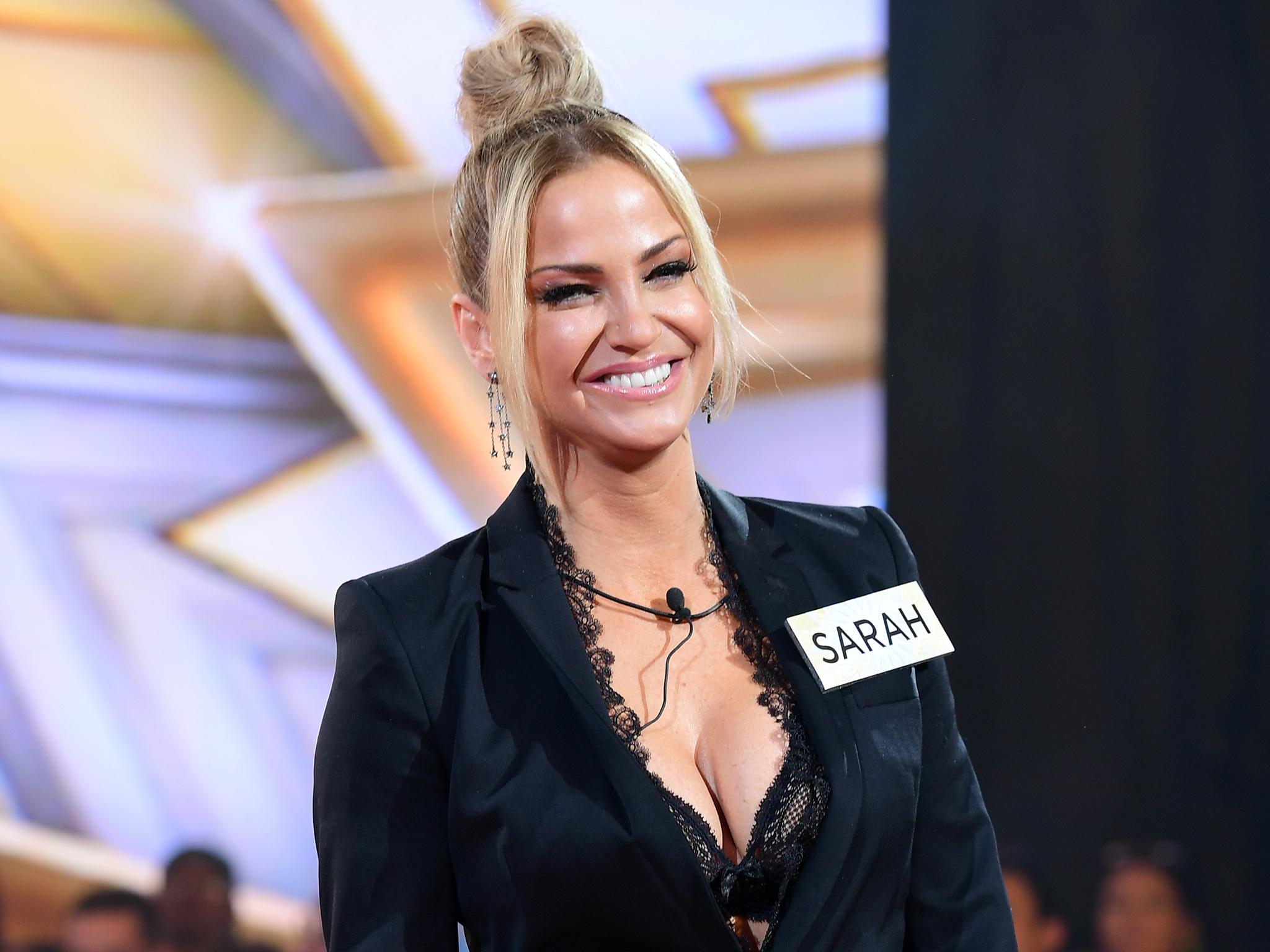Sarah Harding's decision to go public about her breast cancer says a lot about today's toxic celebrity culture
There is certain information that the public is simply not privy to, and has no right to be. Demanding such detail, or starting fake rumours in order to find out the truth, may well get you the desired facts – but at what cost?


When Sarah Harding was forced to announce yesterday that she was diagnosed with breast cancer “earlier this year”, and that the disease has now “advanced to other parts of [her] body”, two things happened. The first was the thousands of well wishes that the former Girls Aloud member received from friends, family, and fans on Instagram and Twitter (where she made the statement); the second was that an unignorable spotlight began shining on the truly toxic nature of today’s celebrity culture.
Harding, who won Celebrity Big Brother in 2017, chose to keep her diagnosis and subsequent battle with cancer private. That decision was cruelly taken away from her after she was spotted in hospital, resulting in her PR and management team finding out that rumours were circulating online about what the star was receiving treatment for. Considering the time Harding once spent in hospital for depression, alcohol and prescription drug rehabilitation in 2011, it’s hard to imagine just how painful it must have been for her to be presented with two options. a) keep her privacy, but risk jeopardising her reputation and probably open herself up to harassment from the tabloid press, or b) tell us all what was really going on.
But Harding should have never been forced to make such a choice in the first place.
For too long now, the reality TV and gossip-led celebrity culture we live in has allowed a very thin line to become even thinner and somewhat blurred. That line is the one between what is in the public’s interest, according to media law, and what is in the public’s interest, according to our self-crafted, illegitimate belief that we as consumers are entitled to know whatever we want about somebody who is famous – whenever we want to.
The Ethical Journalism Network defines public interest as, “what matters to everyone in society. It is about the common good, the general welfare and the security and wellbeing of everyone in the community we serve.” It is not, the organisation stresses, “what the readers, listeners or viewers want either as consumers or people who want to be entertained.” Clearly, Harding’s life-threatening condition did not need to be shared to ensure the public’s security and wellbeing – or achieve the common good. Instead, someone felt it was information they were entitled to.
It’s no surprise that we perceive celebrity culture to be a stream of constant details about someone’s life, which provide instant gratification to anyone and everyone that wants to know them. Shows such as Keeping up with the Kardashians and platforms like the Daily Mail’s “showbiz” page, are dedicated to – and loved by some for – exposing intimate, often invasive details about famous peoples’ lives. This isn’t to say that watching or reading these pages is the problem – I say this as an avid reality TV fan myself – it’s the effect of them and the way we approach people in the public eye as a result of them that is the issue.
Whether someone is famous or not, there is certain information that the public is simply not privy to, and has no right to be. Demanding such detail, or starting fake rumours in order to find out the truth, may well get you the desired facts – but at what cost?
Past tragedies, such as the recent death of TV presenter Caroline Flack, have taught us that when social media trolls and the press intrude too far into well-known people’s lives, it can have tragic consequences. In Flack’s case this transpired psychologically, but for Harding – who has had her own dealings with mental illness in the past – this clear invasion of privacy could easily have had an effect on her physical wellbeing too. The photo Harding chose to accompany her statement was, afterall, one of her in a hospital bed, where she took the opportunity to thank “the wonderful NHS doctors and nurses who have been and continue to be heroes.”
“I am doing my very best to keep positive and will keep you updated here with how I’m getting on,” Harding wrote to her 124,000 Instagram followers, before adding: “In the meantime, I hope you’ll all understand and respect my request for privacy during this difficult time.”
The fact Harding now feels she has to keep us updated makes me feel uncomfortable. As it should you. Is it not disturbing that we have been granted some kind of twisted access to receive “all the latest celebrity updates”, straight from the celebrity in question herself?
Maybe Harding’s happy to do this, maybe she’s not. We’ll probably never know that – and so we shouldn’t. The point is, she chose to keep a very intimate, and utterly devastating, part of her life private – but we refused to let that happen. And until we can honestly say that we have done something about this, be it fighting for new legislation or demanding better control on the spread of fake news, we should all be incredibly apologetic to Harding. It is our collective responsibility to right this wrong – and all the ones that have come before it – because whether you had a hand to play in coercing Sarah Harding into announcing her illness or not, we all to some extent partake in the celebrity culture that allowed it to happen.
Join our commenting forum
Join thought-provoking conversations, follow other Independent readers and see their replies
Comments
Bookmark popover
Removed from bookmarks